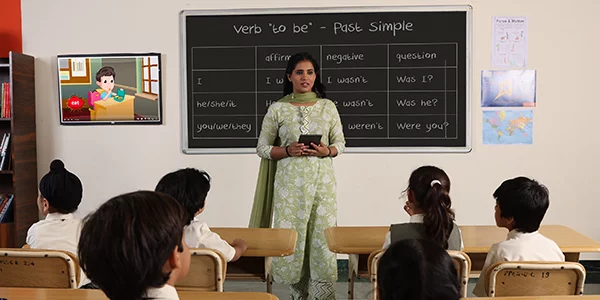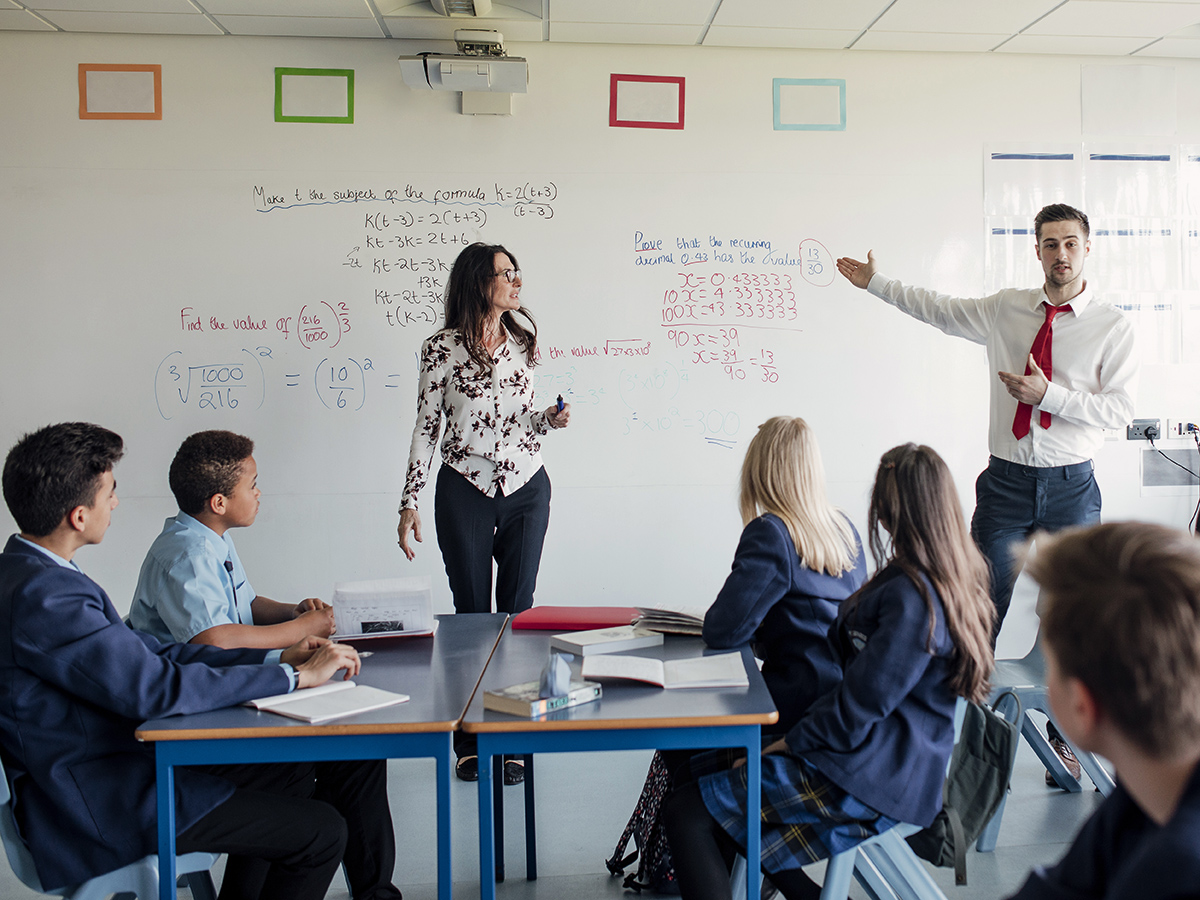Enroll in Primary Science Tuition Singapore for a Strong Science Foundation
Enroll in Primary Science Tuition Singapore for a Strong Science Foundation
Blog Article
Discover the Important Advantages of Recognizing Primary Science for Young Learners
The relevance of primary science education and learning for young students extends much beyond simple expertise procurement; it serves as an essential pillar in establishing necessary abilities such as crucial thinking, analytical, and creativity. Involving with clinical ideas through inquiry-based and interactive activities not only cultivates curiosity however additionally lays the foundation for resistant, confident learners. As we explore these advantages better, it ends up being clear that the implications for future scholastic and personal development are profound. What details approaches can instructors employ to optimize these advantages?
Enhancing Crucial Thinking Abilities
Promoting critical assuming skills in young students is vital for their cognitive advancement and future academic success. Important thinking makes it possible for youngsters to evaluate details, examine proof, and make notified choices, which are crucial abilities in today's information-rich society. By participating in scientific questions, young students can improve these abilities as they explore ideas through testing, thinking, and observation.
In primary scientific research education and learning, educators can promote crucial reasoning by urging students to ask concerns, formulate theories, and perform experiments. This hands-on method permits youngsters to exercise problem-solving and establish rational thinking abilities. When pupils examine the residential or commercial properties of products or the principles of motion, they learn to evaluate their findings critically and draw verdicts based on proof.
Additionally, conversations and joint tasks can advertise crucial reasoning by giving possibilities for students to express their ideas, difficulty assumptions, and think about diverse perspectives. By developing an encouraging environment that values questions and representation, teachers can nurture crucial assuming skills that empower young students to end up being independent thinkers and lifelong students. Ultimately, boosting these skills lays a robust structure for their future scholastic ventures and personal development.
Fostering Curiosity and Expedition

Main scientific research education and learning gives an organized setting where young learners can explore numerous sensations via hands-on experiments and observations. By enabling them to communicate with materials and participate in inquiry-based discovering, instructors produce possibilities for children to develop hypotheses, test their concepts, and reason. Such experiences nurture a feeling of wonder and exhilaration concerning science.

Building Self-confidence in Problem Fixing
Building self-confidence in problem-solving is an essential part of key scientific research education and learning that empowers young students to approach challenges with resilience and creative thinking - primary science tuition Singapore. They develop crucial abilities in crucial thinking and evaluation when youngsters are urged to involve with clinical principles with hands-on tasks and inquiry-based knowing. This process not only boosts their understanding of clinical concepts yet also fosters a feeling of possession over their understanding
To develop confidence, instructors should develop an encouraging setting where blunders are deemed possibilities for growth rather than failings. This motivates trainees to take dangers and discover various solutions to issues. By giving scaffolding and advice, teachers can aid pupils navigate complicated jobs, progressively enhancing their independence in problem-solving circumstances.
Furthermore, collaborative knowing experiences, such as team projects or experiments, can additionally boost students' self-confidence as you could try here they discover to articulate their thoughts and pay attention to others' perspectives. These communications support social abilities and reinforce the idea that analytic is usually a cumulative undertaking. Inevitably, cultivating self-confidence in problem-solving prepares young students for future scholastic difficulties get redirected here and equips them with the devices needed for lifelong knowing.
Encouraging Creative Thinking and Innovation
In the realm of main science education, encouraging imagination and development is important for growing a dynamic understanding atmosphere. By cultivating a culture where young students can explore concepts and experiment easily, educators aid students establish essential thinking skills and a passion for discovery. Creativity in science encourages kids to ask concerns, create theories, and involve in hands-on activities that promote their creativity.
Incorporating flexible projects and inquiry-based knowing right into the curriculum allows students to share their unique viewpoints and remedies. When charged with addressing an issue related to their environment, students can brainstorm numerous approaches, leading to creative results that showcase their originality. This not only strengthens their understanding of clinical principles however likewise instills a sense of ownership over their learning process.
Furthermore, imaginative science education supports collaboration amongst peers, as pupils typically share concepts and improve each other's insights - primary science tuition Singapore. This collective spirit promotes not just technology however also vital social abilities. Therefore, by focusing on creative thinking and innovation in main scientific research education and learning, we equip young learners to assume seriously, welcome obstacles, and imagine opportunities, laying a strong foundation for lifelong knowing and expedition
Getting Ready For Future Learning Obstacles
Young learners' capability to browse future understanding obstacles rests on a strong structure in key scientific research education. This foundational understanding equips pupils with crucial assuming skills and a methodical approach to analytic, vital for tackling intricate problems in an ever-evolving globe. Main scientific research cultivates inquiry-based knowing, urging trainees to ask questions, explore theories, and participate in hands-on experiments.
As they develop these abilities, learners end up being adept at examining information, identifying patterns, and drawing informed verdicts. Such proficiencies are important not just in scientific areas but likewise in design, modern technology, and mathematics (STEM), where interdisciplinary understanding is click here for more info progressively important.
Additionally, primary scientific research education grows a sense of inquisitiveness and resilience in young learners, enabling them to see difficulties as possibilities for growth. As they experience and get rid of barriers in their clinical explorations, they develop confidence in their capacity to introduce and adjust.
Inevitably, a strong structure in key science not just prepares young students for scholastic searches however additionally outfits them with the devices essential for long-lasting discovering and flexibility in a rapidly transforming worldwide landscape. By buying primary scientific research education and learning, we are purchasing the future possibility of our students.
Verdict
Comprehending main scientific research is important for young learners, as it fosters essential reasoning, interest, and creativity. Eventually, the advantages of main science education prepare youngsters for future academic searches and infuse long-lasting discovering practices important for thriving in an ever-evolving globe.
The importance of key science education for young students expands much past simple knowledge purchase; it serves as a fundamental pillar in creating important skills such as crucial reasoning, analytic, and imagination. By developing a supportive setting that values questions and reflection, teachers can nurture crucial believing skills that equip young students to end up being independent thinkers and lifelong learners. Therefore, by focusing on creative thinking and technology in key science education, we encourage young students to assume critically, embrace challenges, and visualize opportunities, laying a strong structure for lifelong discovering and expedition.
Young learners' capacity to browse future knowing challenges pivots on a strong foundation in primary scientific research education and learning.Recognizing primary science is critical for young students, as it cultivates essential reasoning, interest, and creativity.
Report this page